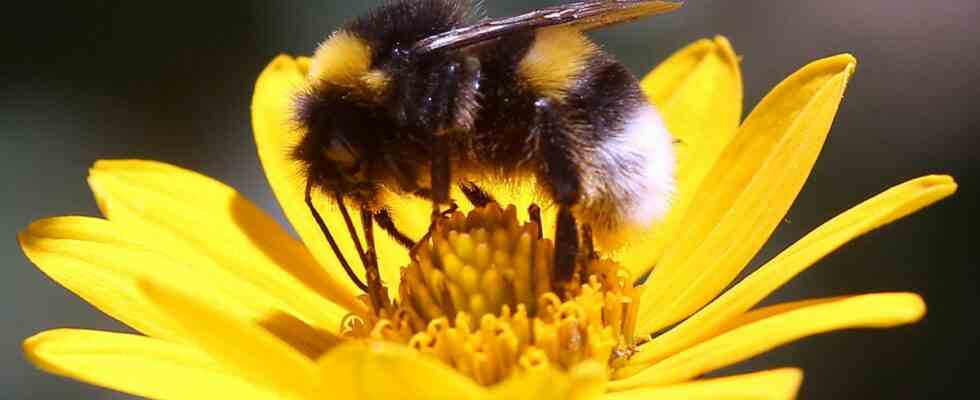Animals often perceive their environment differently than humans. For dogs, the world is mostly made up of smells, and bats use ultrasound to find their way in the dark. What is less well known is that bumblebees and other pollinating insects perceive electric fields emitted by the flowers of plants. Based on these fields, the bumblebees can probably tell whether a flower contains nectar and is worth flying to.
Two studies now show that fertilizers, pesticides and air pollution not only harm beneficial insects directly, but also indirectly by interfering with the animals’ sensory perceptions. “We know that chemicals are toxic, but we know little about how they affect direct interactions between plants and pollinators,” Ellard Hunting, a biologist at the University of Bristol, said in a statement from the university.
Hunting and his team found that fertilizers and pesticides used in intensive agriculture alter the electrical field of plants, disrupting communication between plants and pollinators. As a result, plants are visited less frequently by insects and are therefore pollinated less frequently, the researchers report in the journal PNAS Nexus.
It has long been known that areas treated with fertilizers or pesticides are less frequently visited by pollinating insects. But the reason for this was obscure: Since the animals not only use their electrical senses to search for nectar, but also their senses of smell and sight, it could theoretically also be because the chemicals change the spectral colors of the flowers or their smell.
Many other chemicals are likely to interfere with insect perception as well
Hunting’s team was able to rule out both. Using a spectrometer, the researchers showed that the spectral colors of sprayed and unsprayed flowers do not differ. The substances also do not emit an odor that deters insects. The biologists proved this with an experiment in which they offered bumblebees artificial flowers filled with a sugar solution. They sprayed half of it with a fertilizer solution, leaving the rest untreated. The bumblebees visited all flowers equally often.
Next, the researchers showed that the electric fields around flowering plants change when they are sprayed with chemicals used in agriculture. According to the results, fertilizer changes the field for up to 16 minutes. The insecticide imidacloprid, a so-called neonicotinoid, even for up to 25 minutes.
The researchers proved that insects interfere with this by changing the natural electrical field of lavender flowers in a way that is characteristic of certain chemicals. “Bumblebees visited flowers in which the electrical field was altered less frequently,” they write in their study.
“It is the first known example of human activity affecting the electrical sense of a terrestrial animal,” said Sam England, a researcher involved in the study. The harmful effects are comparable to those of noise pollution from a motor boat, for example, which impairs the ability of some fish to perceive their enemies in good time. Or with the light pollution at night that confuses moths. The fertilizers are a kind of disturbing noise for bumblebees and probably also bees.
Hunting thinks it’s very likely that many other agricultural and horticultural chemicals that the scientists haven’t specifically tested also interfere with insect cognition. “It opens up a new perspective on how humans affect nature,” he says.
The result of an investigation published almost simultaneously in the journal Proceedings of the Royal Society B published supports this assessment. A team led by James Ryalls from the University of Reading describes how air pollution discourages beneficial parasitic wasps used in biological pest control.
Nitrogen oxides and ozone, both common air pollutants, make it difficult for parasitic wasps to find pests like aphids, the study found. As a consequence, the pests can multiply while the number of beneficial wasps continues to decrease over time. “This is a worrying result because many farmers who practice sustainable farming use this type of biological pest control,” Ryalls said in a statement from the University of Reading.

